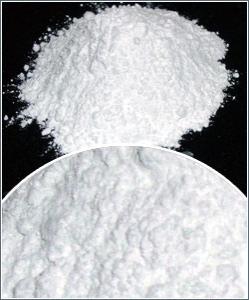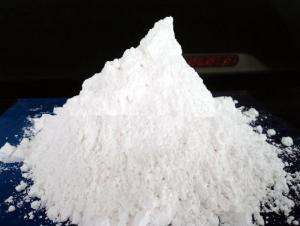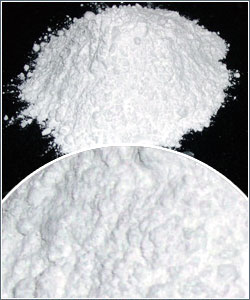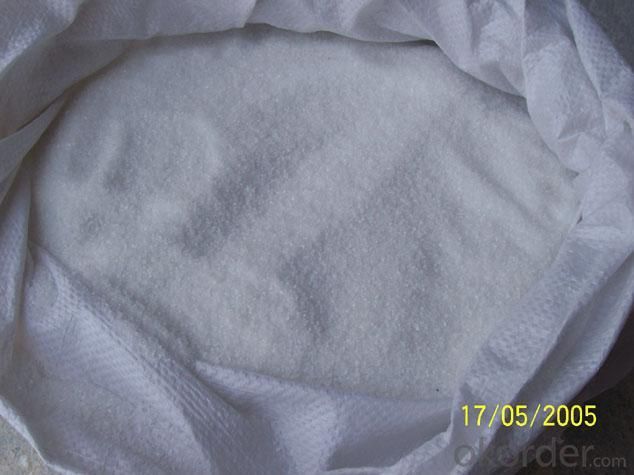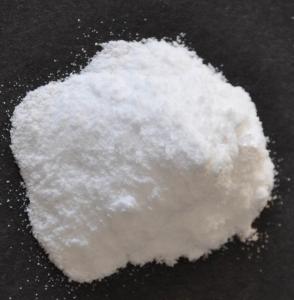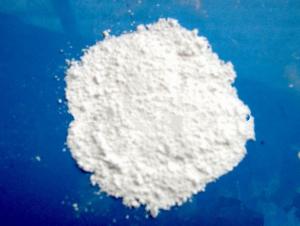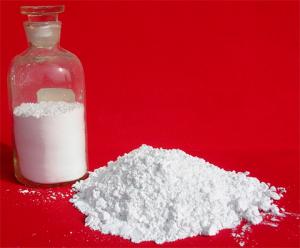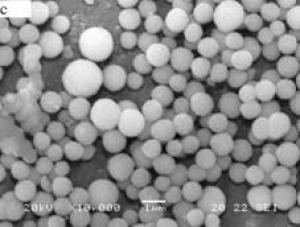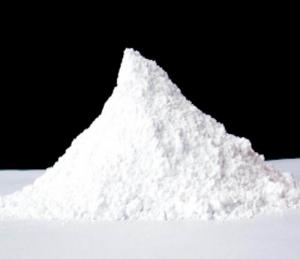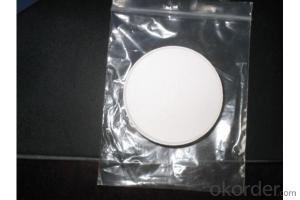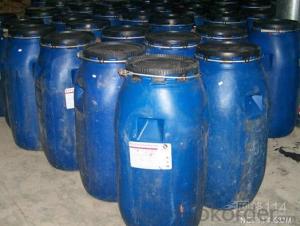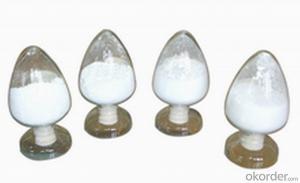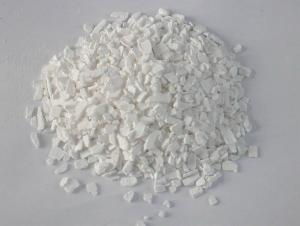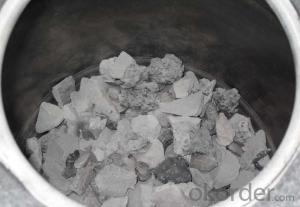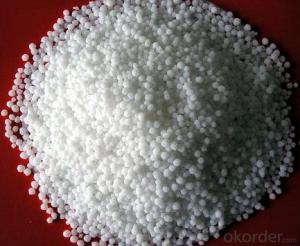Light Calcium Carbonate PCC Industrial Grade
- Loading Port:
- Qingdao Port
- Payment Terms:
- TT or LC
- Min Order Qty:
- 24MT m.t.
- Supply Capability:
- 120000 MT Per Year m.t./month
OKorder Service Pledge
OKorder Financial Service
You Might Also Like
Product: Light Calcium Carbonate PCC Industrial Grade
High Content:CaCO3 95% min
Competitive price
Superior Quality
High Whiteness,various fineness
Technical Support
Properties of Light Calcium Carbonate PCC Industrial Grade:
White powder or colorless crystals. Odorless. Tasteless. There are two crystals, one is the orthorhombic crystals of aragonite, another is the hexagonal rhombohedral crystal calcite. At approximately 825 ° C is decomposed into calcium oxide and carbon dioxide. Soluble in dilute acid, almost insoluble in water. The aragonite: relative density is 2.83, melting point 825 ° C (decomp.). Calcite: Relative density (d25.2) 2.711, melting point 1339 ° C (10.39MPa). Irritant, can be devided into synthetic and natural calcium carbonate.
Appliation of Light Calcium Carbonate PCC Industrial Grade:
- Paper coating
- As fillers & additives in plastic, paint & rubber
- Used also in food, cosmetics,pharma…
Technical of Light Calcium Carbonate PCC Industrial Grade:
Product name | Heavy calcium carbonate(1500Mesh) | ||
Item | Specification | Result | |
Purity as %CaCO3 %≥ | 98.0 | 98.5 | |
Whiteness ≥ | 90.0 | 95.0 | |
Acid Insoluble %≤ | 0.25 | 0.02 | |
Fe2O3 %≤ | 0.10 | 0.04 | |
Loss of Drying in 105°C %≤ | 0.50 | 0.10 | |
Pb %≤ | 0.001 | <0.001 | |
As %≤ | 0.0002 | <0.0002 | |
Particale size (D50) μm≤ | 1.3 | ||
Product name | Precipitated calcium carbonate | ||
Item | Specification | Result | |
Purity as %CaCO3 %≥ | 97.0 | 97.5 | |
Loss of Drying in 105°C %≤ | 0.7 | 0.3 | |
settlement bulk ml/g≥ | 2.6 | 2.8 | |
Acid Insoluble%≤ | 0.2 | 0.05 | |
PH 10% suspension | 8.0-10.5 | 9.8 | |
Residue through 325 mesh %≤ | 0.5 | 0.1 | |
Whiteness ≥ | 90.0 | 94.5 | |
Manganese %≤ | 0.008 | 0.005 | |
Particale size (D50) μm≤ | 1.4 | ||
Our goal: to be a pioneer in the industry
Our aim: to provide customer with quality products and services
Our spirit: unity and hard work to break through ourselves
Our criteria: integrity win-win and mutual benefit
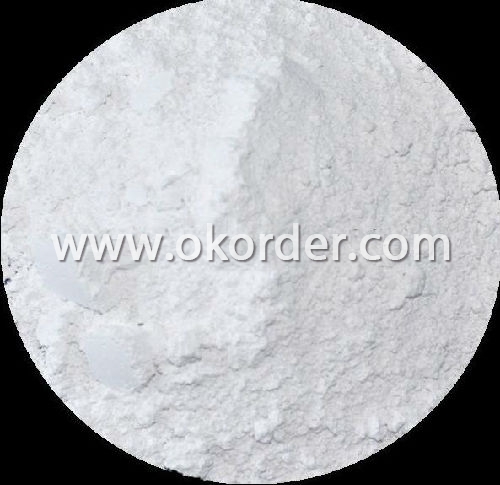
- Q: The role of sugar in the human body?
- Detoxification: Carbohydrate on the liver glycogen levels in the body of the resistance to toxic substances and the detoxification of certain chemical substances in the important significance.If the human body glycogen rich, the resistance to disease is strong At the same time on the carbon tetraoxide, ethanol, arsenic and other toxic substances have a strong detoxification.
- Q: The main role of sugar?
- Carbohydrates as an important body of nutrients, mainly divided into four categories: monosaccharides, disaccharides, oligosaccharides and polysaccharides.
- Q: What kind of carbohydrates?
- Monosaccharides include dextrose, fructose, ribose and deoxyribose that are present in the cell, but are predominantly hexose (glucose, fructose and galactose) present in the diet.
- Q: What are the nature of sugar
- Carbohydrates, also known as carbohydrates, are the most abundant and most widely distributed organic compounds in nature. Mainly by the carbon, hydrogen, oxygen composition. Glucose, sucrose, starch and cellulose all belong to carbohydrates.
- Q: What are the sugars?
- Carbohydrate carbohydrates, also known as carbohydrates, are the most widely distributed and most important organic compounds in the world. Glucose, sucrose, starch and cellulose are all carbohydrates. X0d carbohydrates are all organisms The main source of energy needed to sustain life activities is not only nutritious but also has special physiological activity, such as: heparin in the liver has anticoagulant effect; blood sugar in the blood type related to immune activity.In addition, the nucleic acid The carbohydrate compounds are more important for medicine, and the carbohydrate compounds are composed of three elements, C, H and O, And O is usually 2: 1, and the proportion of water molecules, which can be expressed by the general formula Cm (H2o) n.Therefore, these compounds have been called carbohydrates, but later found that some compounds according to their structure and (C6H12O5), deoxyribose (C5H10O4), etc .; and some compounds such as acetic acid (C2H4O2), lactic acid (C3H6O3), and other compounds, such as acetic acid (C2H4O2), lactic acid (C3H6O3) And its composition is consistent with the general formula Cm (H2o) n, but the structure and properties are completely different with the carbohydrate compounds, so the name of the carbohydrate is not exact, but for a long time, so far still in use. X0d from Chemical structures, carbohydrates are polyhydroxyaldehydes, polyhydroxy ketones, and their condensates. <X0d sugars can be divided into three categories according to the hydrolysis and hydrolysis products: x0d monosaccharides: polyhydroxyalides that can not be hydrolyzed Such as glucose, fructose, etc. x0d disaccharides: hydrolysis of sugar to produce two molecules of monosaccharides such as sucrose, maltose, etc. x0d polysaccharide: can be hydrolyzed to produce many molecules of sugar monosaccharides such as starch, glycogen, Cellulose, etc. x0d sugars often use their names according to their origin.
- Q: What are the sugar stocks?
- COFCO Tunhe (600737): The company is mainly engaged in processing of tomatoes, involving sugar, fruit processing of agricultural and sideline products deep processing enterprises.
1. Manufacturer Overview
| Location | Hebei, China |
| Year Established | 1947 |
| Annual Output Value | Above US$ 20 Million |
| Main Markets | North America; South America; Southeast Asia; Africa; Oceania; Mid East; Eastern Asia; Central America; South Asia |
| Company Certifications | ISO 9001:2000 |
2. Manufacturer Certificates
| a) Certification Name | |
| Range | |
| Reference | |
| Validity Period |
3. Manufacturer Capability
| a) Trade Capacity | |
| Nearest Port | Tianjin Port |
| Export Percentage | 41%-50% |
| No.of Employees in Trade Department | Above 10 People |
| Language Spoken: | English; Chinese; |
| b) Factory Information | |
| Factory Size: | Above 5,000 square meters |
| No. of Production Lines | Above 10 |
| Contract Manufacturing | Design Service Offered; Buyer Label Offered |
| Product Price Range | High; Average |
Send your message to us
Light Calcium Carbonate PCC Industrial Grade
- Loading Port:
- Qingdao Port
- Payment Terms:
- TT or LC
- Min Order Qty:
- 24MT m.t.
- Supply Capability:
- 120000 MT Per Year m.t./month
OKorder Service Pledge
OKorder Financial Service
Similar products
Hot Searches
Related keywords
